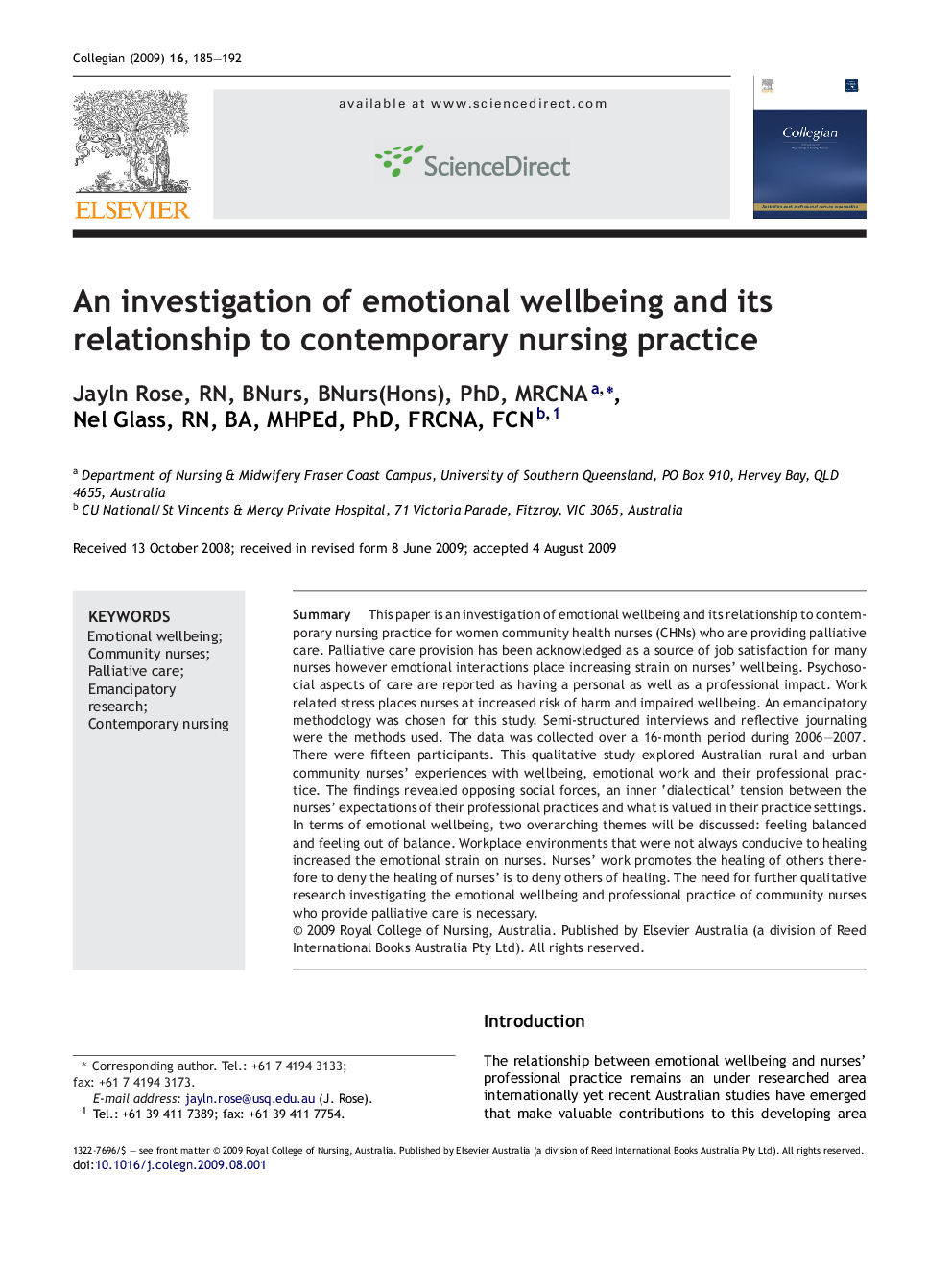| Article ID | Journal | Published Year | Pages | File Type |
|---|---|---|---|---|
| 2646540 | Collegian | 2009 | 8 Pages |
SummaryThis paper is an investigation of emotional wellbeing and its relationship to contemporary nursing practice for women community health nurses (CHNs) who are providing palliative care. Palliative care provision has been acknowledged as a source of job satisfaction for many nurses however emotional interactions place increasing strain on nurses’ wellbeing. Psychosocial aspects of care are reported as having a personal as well as a professional impact. Work related stress places nurses at increased risk of harm and impaired wellbeing. An emancipatory methodology was chosen for this study. Semi-structured interviews and reflective journaling were the methods used. The data was collected over a 16-month period during 2006–2007. There were fifteen participants. This qualitative study explored Australian rural and urban community nurses’ experiences with wellbeing, emotional work and their professional practice. The findings revealed opposing social forces, an inner ‘dialectical’ tension between the nurses’ expectations of their professional practices and what is valued in their practice settings. In terms of emotional wellbeing, two overarching themes will be discussed: feeling balanced and feeling out of balance. Workplace environments that were not always conducive to healing increased the emotional strain on nurses. Nurses’ work promotes the healing of others therefore to deny the healing of nurses’ is to deny others of healing. The need for further qualitative research investigating the emotional wellbeing and professional practice of community nurses who provide palliative care is necessary.
